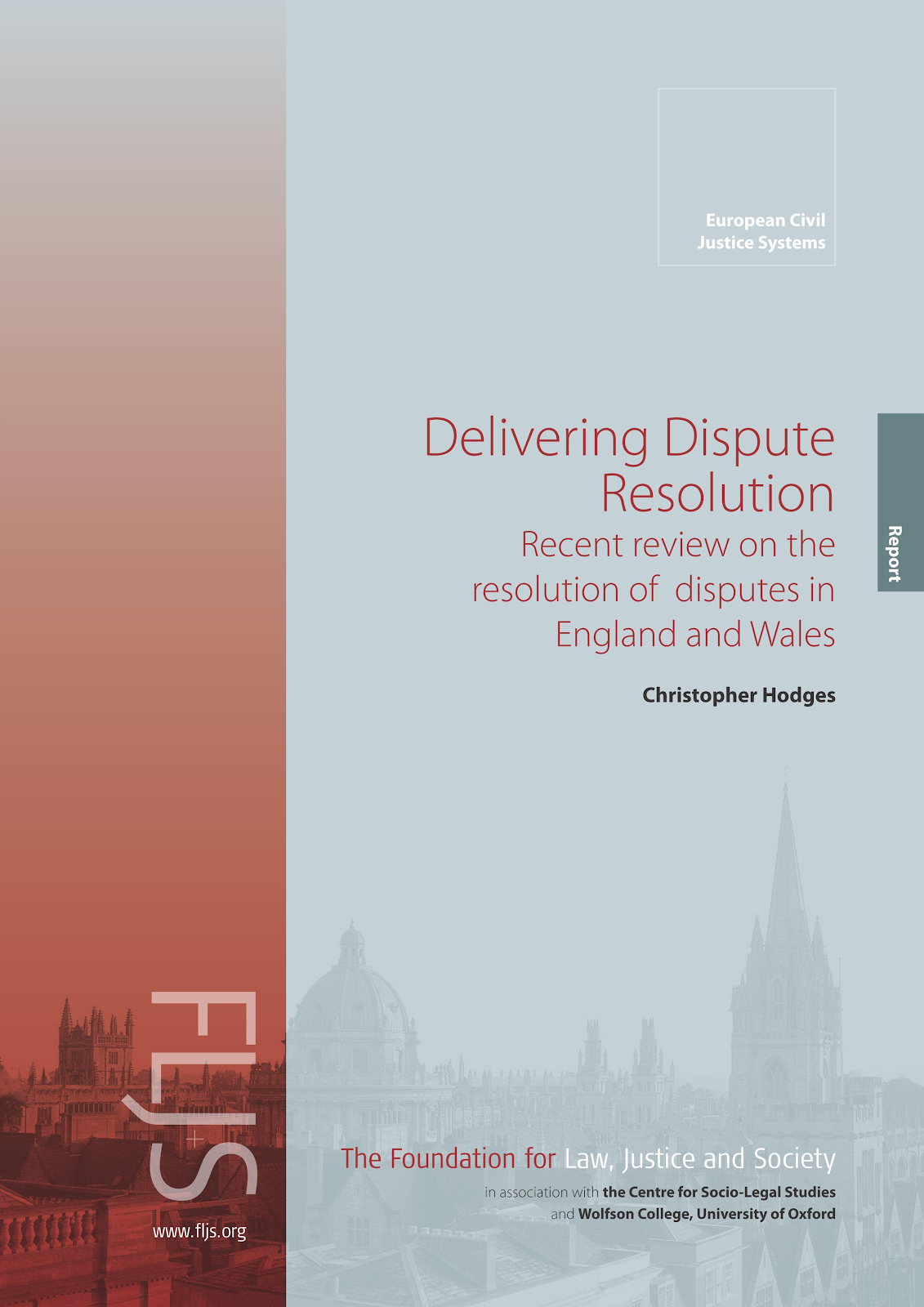Delivering Dispute Resolution: Recent review on the resolution of disputes in England and Wales
Christopher Hodges
This Report summarizes the main points of two recent reviews on the resolution of disputes in England and Wales. One is a study by Professor Christopher Hodges and the other is a Report for the Welsh Government chaired by Lord Thomas of Cwmgiedd, former Lord Chief Justice of England and Wales. There are strong similarities between their conclusions.
- The justice system has broken down in England and Wales. There are too many individual, competing, and overlapping options, which confuse potential users. The system needs to be reconstructed as an integrated single entity.
- Many major dispute resolution pathways are inadequate in delivering justice and should be reviewed. An adversarial system inherently involves levels of cost and delay that defeat people’s desire or ability to reach just resolution of their disputes.
- Experimentation with digitized procedures offers opportunities to modernize processes, with considerable benefits.
- But digitization can exclude a significant number of people and small businesses, who need personal assistance during, after, and especially before starting any formal process.
- Every dispute resolution pathway should be reviewed against its ability to provide satisfactory answers to three questions:
- How do people identify and access information, advice, support, and assistance in solving their problems?
- How do we ensure that dispute resolution pathways are simple, cost-effective and deliver justice to people and organizations?
- How do we identify systemic problems, and address them so as to reduce risk of future recurrence?
Judged against these criteria, dispute resolution is best delivered through online platforms and modernized Ombuds or Tribunals, which are overseen by principles-based regulatory authorities, and which feed back extensive data on issues that can then be addressed by relevant interventions.


No comments:
Post a Comment